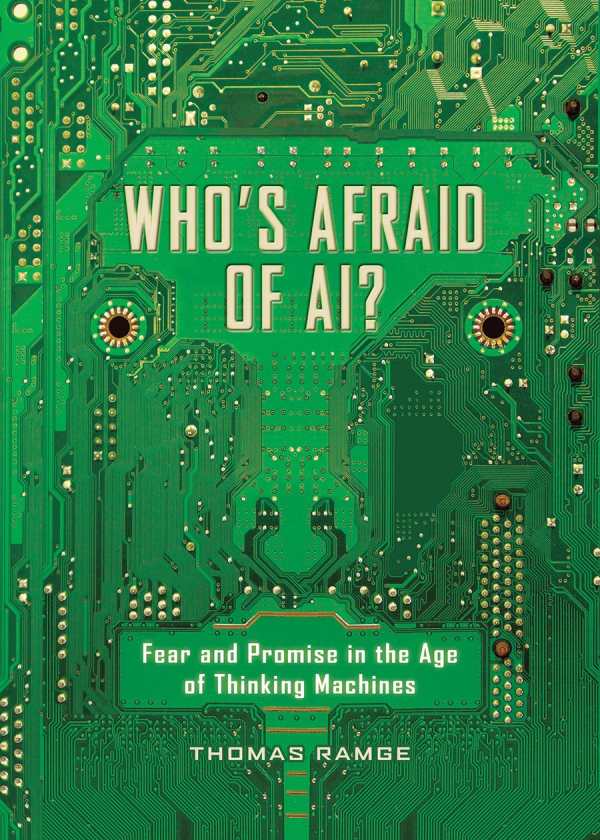Who's Afraid of AI?
Fear and Promise in the Age of Thinking Machines
If you’re worried about computers becoming masters of the world, don’t hold your breath: the greatest minds in artificial intelligence can’t imagine even the first baby steps to building a machine as complex as the human brain, with its 86 billion neurons, each with more than a thousand synapses, or connections, to other neurons. Even so, the effort to create ever-more-brilliant machines is the life work of millions of computer scientists and some of the largest corporations in the world.
Part of the motivation driving AI innovation is noble: to benefit humanity. But don’t overlook the dollars at play. Just as the network effect—each new participant who signed on to digital platforms like Amazon, eBay, and Alibaba made it that much more attractive for others to join, leading those companies to monopoly positions in global commerce—artificial intelligence uses a feedback effect with data to make its machines ever smarter. Moving forward, the companies that create and control the most data will improve faster as all that data serves to “educate” their technology alone. “Machine learning will to some degree be built into these [most popular] products,” writes Thomas Ramge, author of Who’s Afraid of AI?, all but assuring that self-improving technology “shuts out competition.”
Exciting, mind boggling, and, yes, unsettling, AI is destined to transform nearly all sectors of industry and our lives in ways that we can’t even imagine today. At an inviting length, Who’s Afraid of AI? is a wonderful primer on what we need to know and what we need to worry about.
Reviewed by
Matt Sutherland
Disclosure: This article is not an endorsement, but a review. The publisher of this book provided free copies of the book to have their book reviewed by a professional reviewer. No fee was paid by the publisher for this review. Foreword Reviews only recommends books that we love. Foreword Magazine, Inc. is disclosing this in accordance with the Federal Trade Commission’s 16 CFR, Part 255.

